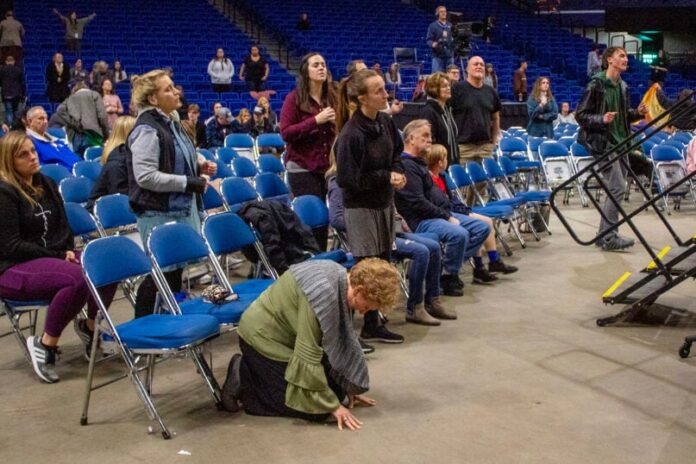REVIVALS have always been a contentious issue. It has divided the American Protestants right down the middle. While some outright condemned them as driven by emotional manipulation, some thought they were the work of God, while a few others insisted it was a bit of both.
The recent Asbury revival, for all the good press it got, also had doubters questioning the veracity of the event. Was it from God or did men manipulate it?
Aaron Griffith wrote in TIME: “Christians from generations past have wrestled with both of these problems. What is real awakening, and what is artificial? Does revival require moral or political impact, and if so, what should it look like? The consensus interpretive key that most have landed on to address both concerns is to watch for the fruit of revival. A true revival produces results: demonstrably changed lives oriented towards holiness and justice.”
Writing in the Wall Street Journal, D J Hart, who teaches history at Hillsdale College, said: “That the Asbury event has so few critics may be a measure of white evangelical Christians’ relief at finally getting some positive—or at least nonnegative—press coverage. After five years of being called amoral hypocritical ignoramuses for supporting Donald Trump, a show of religion that emphasizes piety instead of politics is balm for the soul. And unlike their 18th- and 19th-century predecessors, they are desperate for any sign that American culture is resisting the slide toward atheism and indifference to God.”
Now that the revival is over, what happens now?
Robert Coleman, who was a professor of evangelism at Asbury Seminary for 27 years, spoke in Rupp Arena about what Christians can do next after a revival.
Now 94 years old, Coleman was at Asbury in 1950 when a revival broke out at the school and he was also at another famed Asbury revival in 1970.
“’Follow me,’ Jesus said; isn’t that simple? ” he said. “We can all understand it. You don’t have to go to a big university to know how to make disciples. You just follow Jesus.”
Coleman explained that the best way people can bring lasting revival to their communities is to make disciples, as that was the last command Jesus gave his church.
“Don’t look around for a crowd; begin with the person next to you, who’s next door, or who you work beside,” he said. “Make a friend and continue to develop that friendship; that’s how we make disciples, by being together. Put your arm around them, love them, show them that you care for their soul.”





















